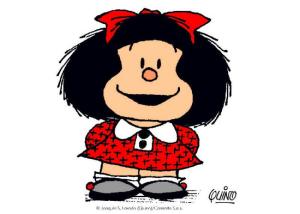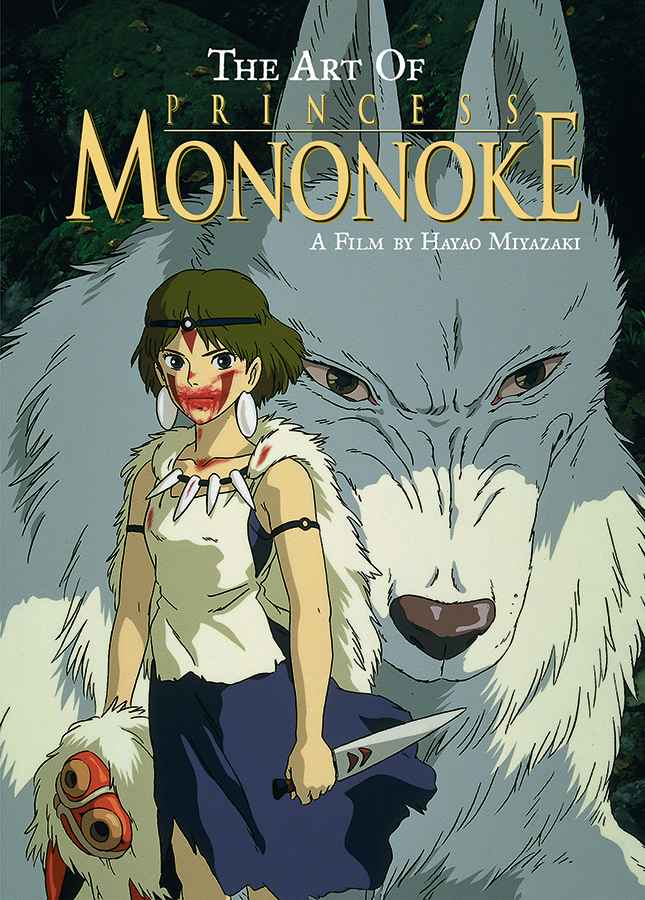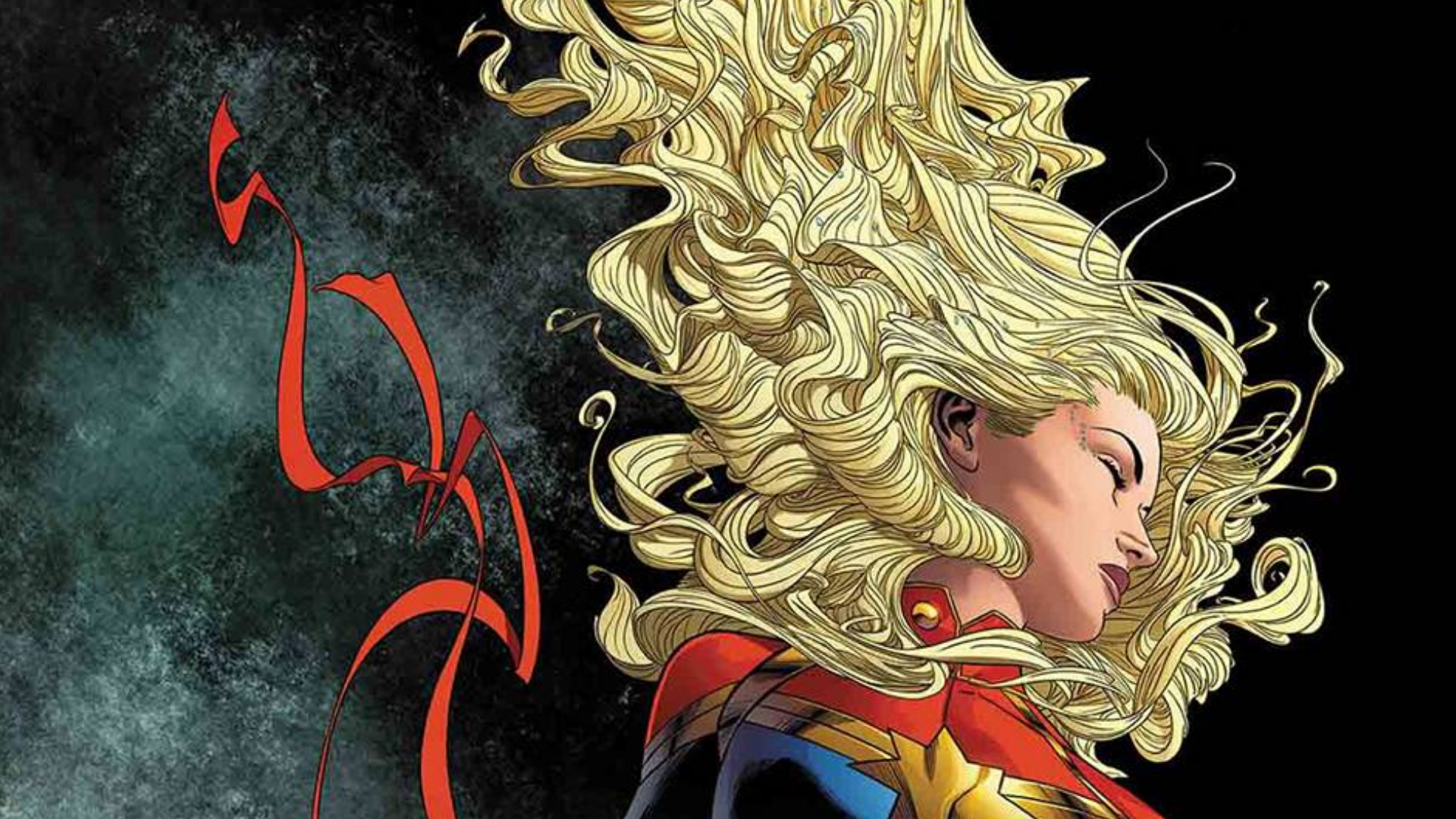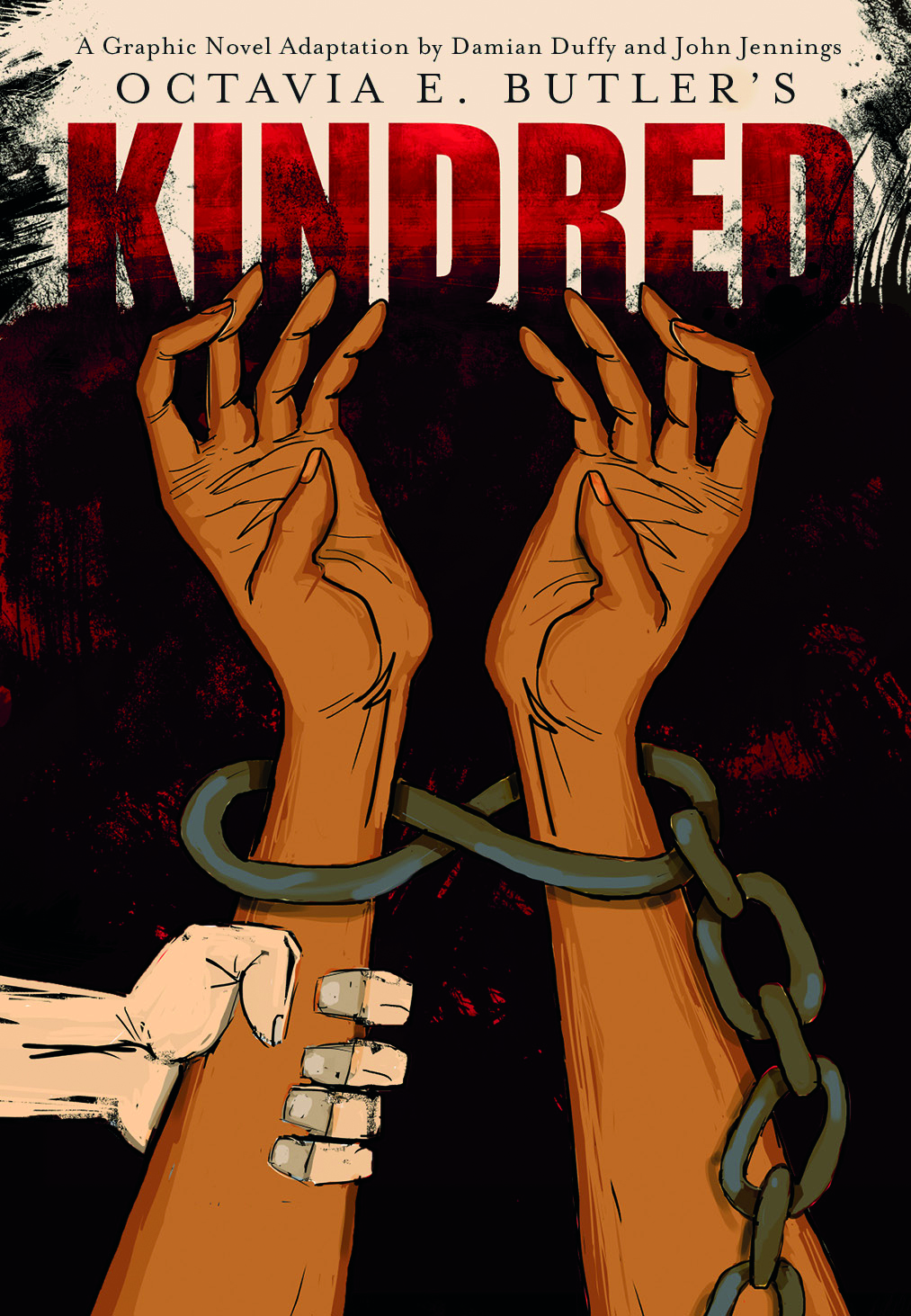Female literary role models for girls at a young age are hard to come by. At least, that was the case for me when I was growing up in Puerto Rico. The books I had contact with were stories in which girls were sidekicks to boys or characters that were not at the forefront of the story. They tagged along and sometimes provided for interesting conflict, but they never got their hands dirty.
As I grew up through middle school and went to junior high, I never found a female character that I considered admirable. Even Hermione from Harry Potter was always a side character rather than a central one in my mind, and I felt no attachment to her.
 And then one day while browsing through a bookstore for something to take home, I came upon a comic strip of a girl who was in kindergarten, but who was so outspoken that adults didn’t know what to respond to her. I was so surprised by this that I flipped through the small anthology and, after reading a few more strips and laughing loud to garner more than a few bewildered looks, I bought it. That was the day I learned of Mafalda and the day my love for her wittiness was cemented.
And then one day while browsing through a bookstore for something to take home, I came upon a comic strip of a girl who was in kindergarten, but who was so outspoken that adults didn’t know what to respond to her. I was so surprised by this that I flipped through the small anthology and, after reading a few more strips and laughing loud to garner more than a few bewildered looks, I bought it. That was the day I learned of Mafalda and the day my love for her wittiness was cemented.
Mafalda is a layered comic that criticizes, among other things, what was then the current politics and society in Argentina, but did so through the eyes of a child asking questions that were difficult for adults to answer. At my young age I was not interested in politics, let alone ones that had no influence in my life or my family’s, since I was 10 or 12 years old. I didn’t quite get the socio-political commentary, though I knew it was there; Mafalda presented some topics in such a simple way that it was easy to get the gist of them.
That wasn’t what I loved about her, though; what made me admire her was her sincerity and concern for humanity. She was worried about the world, worried about others, and she constantly wanted peace for it. And I can’t forget that, above all of her humanistic concerns, she had a voice and she made herself heard. It didn’t matter whether she was speaking to adults or to her peers, Mafalda commanded the attention of those who were with her and pushed them to think.
 I know she pushed me to think; I learned that it was not all bad to be outspoken about your beliefs and that there was more to the world than my own little island. She was a child who made me want to be myself, who made me feel comfortable in my own skin, and pushed me to ask questions and wonder about things in life. She was a rebel against adults, especially when she was obliged to have soup, and she had no trouble trying to argue her way through something just to make her point. She was concerned with children, with her peers, and with the values and the legacy the adults were leaving to the future generations.
I know she pushed me to think; I learned that it was not all bad to be outspoken about your beliefs and that there was more to the world than my own little island. She was a child who made me want to be myself, who made me feel comfortable in my own skin, and pushed me to ask questions and wonder about things in life. She was a rebel against adults, especially when she was obliged to have soup, and she had no trouble trying to argue her way through something just to make her point. She was concerned with children, with her peers, and with the values and the legacy the adults were leaving to the future generations.
She had a voice. She was strong. And I wanted to be just like her.
About ten years after I was introduced to Mafalda, I still find myself loving her, but perhaps even more. I noted all these characteristics that I’d admired about her and understood how much of an impact she has made in my life. I’ve read every single one of her comic strips and own the entire collection in Spanish. I ask questions and don’t always follow the bunch. I also hate soup (except broccoli and cheese soup). And I’m also aware that I have a voice and that there is nothing wrong with making it heard.
Mara is the Young Adult Book Reviewer for Girls in Capes. She is working on an MFA in Creative Writing with a concentration in Fiction.






